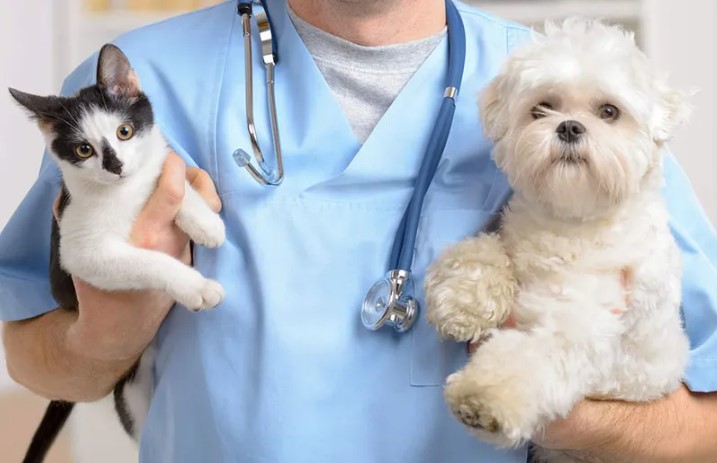As the old saying goes, “An ounce of prevention is worth a pound of cure.” Preventive care helps your pet lead a longer, healthier life. It includes feeding your pets high-quality food, keeping them on routine vaccines and parasite control, and ensuring they are at a healthy weight. It also includes regular physical exams.
Vaccinations
Vaccines help your pet fight off serious illnesses by triggering protective immune responses. They can lessen the severity of symptoms or prevent disease completely. Vaccinating your pet is essential to their health and can save hundreds or even thousands in the long run because they will not need to undergo tests, surgeries, or treatments for severe diseases like rabies. Puppies and kittens need a lot of vaccines due to their fragile immune systems at such young ages, while adult pets should receive regular booster shots. It is heartbreaking to see any animal suffer from a disease, and it is particularly difficult to watch a loving pet die from a preventable condition. Vaccinations protect pets from immediate dangers and reduce the risk of transmission between animals.
In some cases, like rabies, vaccinations are required by law. It is a small price to pay to protect your beloved family member. For more information on vaccinations, contact a veterinarian near you today.
Nutritional Counseling
As in people, pets can develop chronic health issues requiring special dietary guidance. For example, a dog with kidney disease may need to eat a diet that contains less protein and sodium. During a nutritional counseling session, a veterinarian can help you find the right food for your pet’s needs. This is also a great time to discuss your pet’s weight or diet concerns. The adage “an ounce of prevention is worth a pound of cure” applies equally to pet wellness care and human healthcare. Regular checkups, vaccinations and parasite prevention are essential to keeping your pet healthy and happy. The NW Houston animal clinic is the backbone of preventative pet care, allowing the vet to assess your pet’s health and recommend a wellness plan that includes routine exams, parasite control, dental cleanings, nutrition counseling and more. The clinic can help you implement that plan at home by providing annual wellness exams, blood work and X-rays.
Parasite Control
Like humans, pets can become seriously sick if infested with internal parasites. This is why pet owners need to keep their animals up-to-date with all their preventive treatments. Parasite prevention includes flea, tick and heartworm medications. These medications prevent fleas from suckling blood, ticks from transmitting diseases such as Lyme disease and Rocky Mountain spotted fever, and heartworms from invading the animal’s bloodstream and causing respiratory and heart issues. It’s a common misconception that pets don’t need monthly parasite control over the winter. Still, the truth is that most ectoparasites lie dormant until unseasonably warm weather resurrects them — and they immediately begin searching for their first blood meal of the season. Regular parasite prevention also keeps the intestinal parasites at bay. This means a reduced risk for zoonotic infections for the whole family and a more comfortable home environment for your pet. In many cases, preventing parasites is cheaper than treatment for the diseases they cause.
Dental Care
If your pet’s breath smells so bad that you plug your nose and pull away from their kisses, it is a sign that they need dental attention. And not just for their sake — issues with a dog’s teeth can lead to major health problems that impact the rest of their body. When plaque can build up on a dog’s teeth, it can move below the gum line and cause gum disease. Once in the bloodstream, the germs can move to organs such as the heart, kidneys, and liver.
This is called bacteremia, and it can make dogs quite sick. Dental care for pets includes brushing their teeth regularly, chewing toys and treats that promote dental health, and providing annual dental health examinations and cleanings. These exams are performed under anesthesia so a veterinarian can see the entire mouth for signs of dental disease that may not be visible.



More Stories
Ragdoll Cat Breed
10 dog care tips every dog owner should know
18 helpful tips for caring for a blind dog